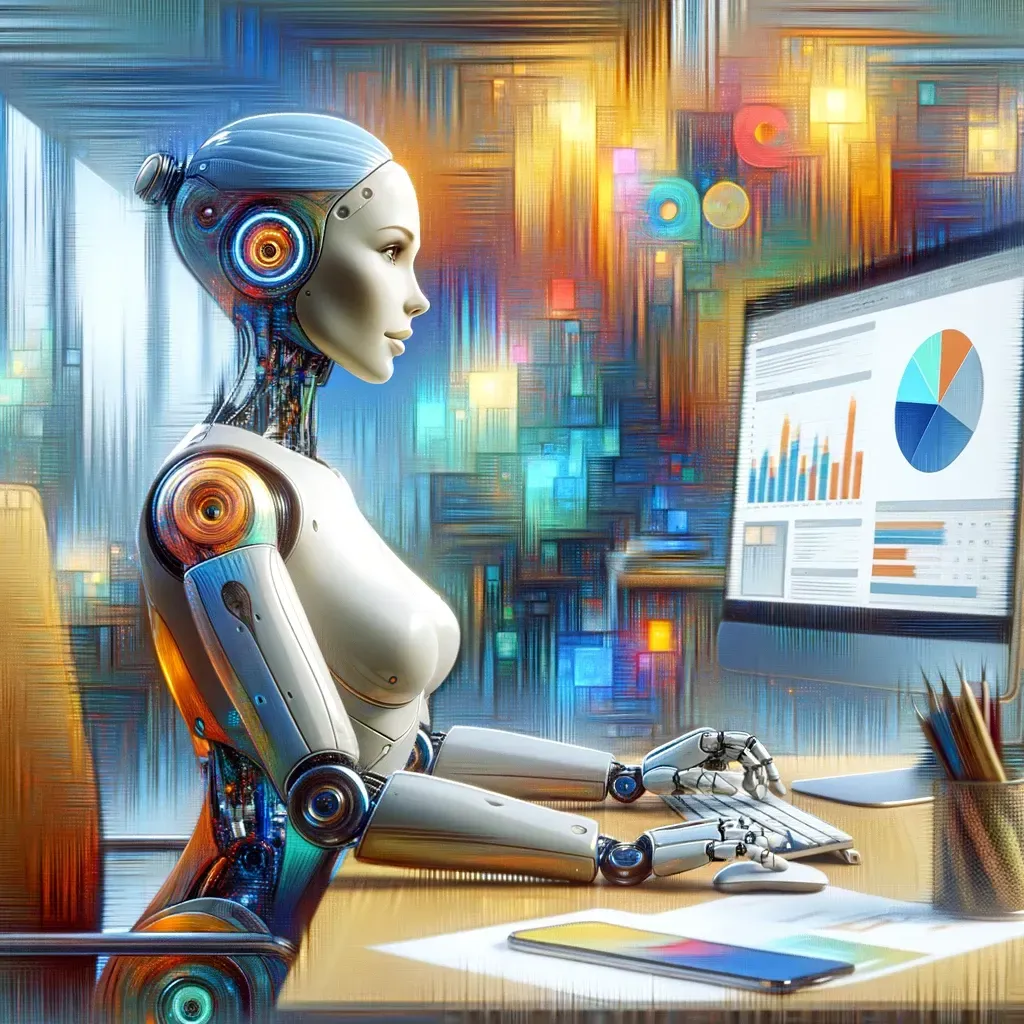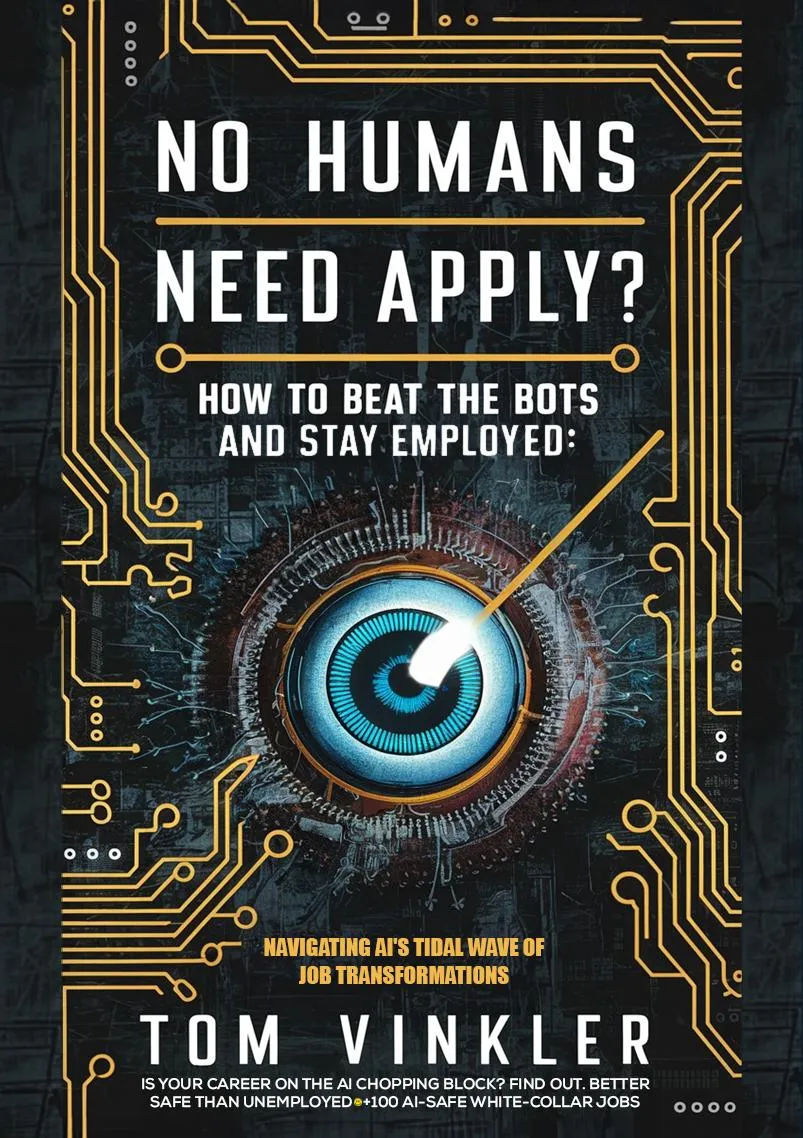
Keep up to date on AI and
Job Market trends
Keep up to date on AI developments
Learn how AI is impacting particular segments
Find emerging and new roles the new world is creating
Find out about community grass-roots initiatives to shape our world the way we want it. (not how 'they' want it)
Useful Reading

Redefining Work: Universal Basic Income and Beyond
We have already the technology and the resources to provide every person... What we lack is the will and the wisdom to use those resources wisely." - Martin Luther King Jr.
Redefining Work: Universal Basic Income and Beyond
Alright, let's get into the wild and wacky world of Universal Basic Income (UBI) — the idea that might just save us from robot overlords, or maybe just make us a whole lot lazier. Who knows? It's the economic experiment we never knew we desperately needed.
Introduction to Universal Basic Income (UBI)
So what exactly is this UBI thing everyone keeps talking about? Simply put, it's the idea of giving every single citizen a regular, unconditional cash payment from the government – no strings attached. Think of it like a monthly allowance for being alive. Sounds too good to be true, right? Well, as with most things in life, there are pros, cons, and a whole lot of "but what if…" questions.
Brief history of the concept
Believe it or not, UBI isn't some radical new-age concept cooked up by Silicon Valley tech bros. It's been floating around intellectual circles for centuries. Figures like Thomas Paine and Martin Luther King Jr. were fans of the idea way back when. Recently, it's back in the spotlight thanks to worries about those darn robots stealing all our jobs.
Current examples of UBI experiments and pilots
Here's where things get interesting. People are actually experimenting with UBI around the world. Finland had a pilot program, Alaska gives its residents an oil dividend (sort of like UBI), and even some cities in California are giving it a go. The results so far? Well, let's just say people aren't suddenly quitting their jobs en masse to become full-time Netflix binge-watchers, but there are some promising signs.
The need for redefining work in the age of automation
Let's be real, the robots are coming (they might already be here disguised as self-checkout machines). AI is getting scarily good at doing tasks we used to think only humans could handle. From truck driving to writing news articles (yikes!), it seems like no job is safe from the robot revolution.
Traditional welfare systems just aren't built for this kind of upheaval. UBI could be a lifeline as more and more people find themselves struggling to find work that pays the bills.
Potential benefits of UBI
Safety net central: UBI puts a floor under everyone, ensuring no one falls into extreme poverty. Think of it like financial security in an increasingly unpredictable world.
Goodbye soul-crushing jobs?: If you don't have to scramble to pay rent, maybe you finally quit that awful job and pursue something more fulfilling. Entrepreneurship, anyone?
Healthy body, healthy mind: That constant financial stress people endure? It's terrible for health. UBI might ease that burden, improving both physical and mental wellbeing.
Unleash the creativity: Maybe you're a painter, a writer, or have a revolutionary idea for a new kind of potato chip. UBI could free you up to pursue those passions.
Concerns and criticisms surrounding UBI
Who pays for this utopian dream?: Yeah, about that. UBI ain't cheap. Taxes would likely go up, especially for the wealthy. Is everyone ready for that?
Work? Why bother?: Critics worry people will just become couch potatoes if they get free money. Where's the incentive to do anything productive?
Fairness factor: So everyone gets the same amount, from the billionaire to the struggling single mom? Seems unfair, right?
Alternative or complementary approaches to UBI
UBI isn't the only solution on the table. There's Negative Income Tax (NIT), job guarantees, universal basic services (like healthcare and education), and good old-fashioned wealth redistribution. Maybe the answer is some combination of these things.
Redefining the concept of work
Here's a mind-bender: what if we stopped seeing work as just a way to make money? The traditional 40-hour workweek is already starting to crumble. UBI might accelerate this, forcing us to rethink what "work" even means. More time for volunteering, caregiving, or exploring creative passions? Sign me up!
The role of education and training in the UBI era
Even with UBI, education is key. We need to prepare people for a world where jobs change faster than you can say "self-driving car." Lifelong learning and re-skilling will be the name of the game.
Conclusion
UBI is no silver bullet. There are valid concerns and unanswered questions. However, ignoring the massive changes coming to the world of work is a recipe for disaster. We need bold ideas, experimentation, and a whole lot of honest conversation about how we create a society where everyone can thrive, even as robots and AI become more powerful. The future of work is uncertain, but one thing is clear: we won't solve it with outdated thinking. UBI might be part of the solution, a stepping stone, or maybe just a thought-provoking idea that forces us to consider alternatives.
Whatever the path forward, it needs to include redefining work, investing heavily in education, and finding ways to ensure everyone benefits from technological progress, not just a select few.
The stakes are high. Do we sleepwalk into a future where robots do all the work, and a vast swath of humanity is left behind? Or do we use this potential disruption to create a more just and equitable society, where everyone has the chance to live a fulfilling life? The choice is ours, and the time to start making those choices is now.
Books Published
No Humans Need Apply?
If you want to get the whole story and understand all the ins and outs on this topic, you might want to check this out.

